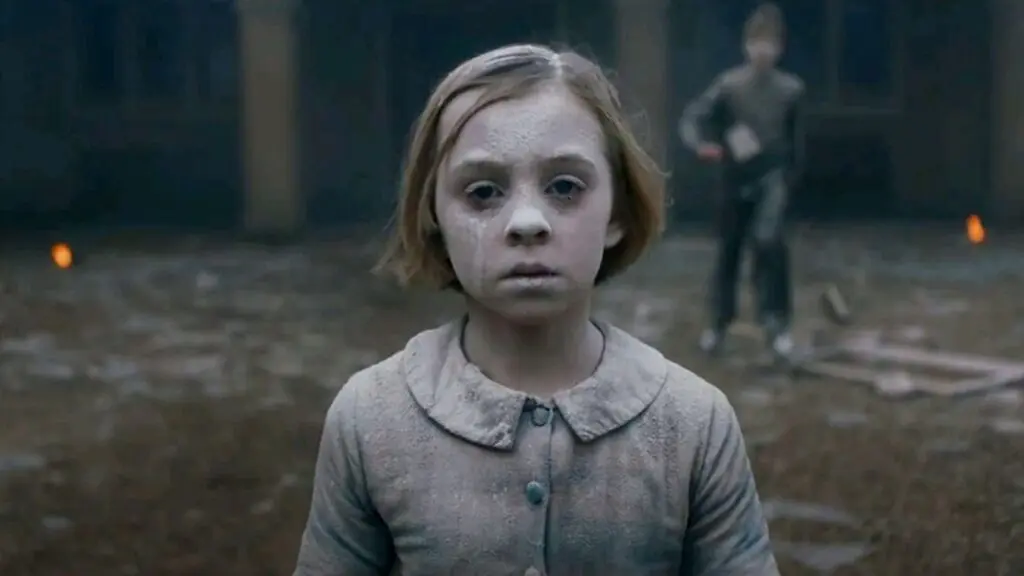Summary
Haunting and visceral, Ole Bornedal’s beautifully shot film stays in your mind well after it’s over.
“If God drops a pencil and looks away, and he is gone for two years,” is what the small child Rigmor said at her dinner table. She repeats it after her school has been bombed by friendly fire. It’s a haunting scene in a film full of them. Netflix’s The Bombardment is a unique war film in that way. Up close and intimate as it juggles morals and morality. Here, Ole Bornedal has created a visceral experience that will linger with you long after it’s over. One thing is for certain, whoever wrote the phrase the spoils of war was a cold son of a bitch.
Originally titled, Skyggen I mit øje, which translates to The Shadow in My Eye, the Netflix film is based on the true story of the accidental bombing of a French Roman Catholic school in the heart of Copenhagen, where German forces have now taken over. The school, Institut Jeanne D’Arc, lost 86 children that day.
All perished because of a lack of visibility and assumptions made by the British Royal Air Force. The film follows a series of unfortunate incidents that led up to that event.
One of them follows a young man named Henry. He came to the city after a case of shell shock while watching the murder of a car of bridesmaids shot down by a British fighter. (They have tragically mistaken the vehicle for carrying an SS officer. Henry, his cousin Rigmor, and Eva go to Jeanne D’Arc. There is also a focus on a nun, Sister Teresa (the terrific newcomer, Fanny Bornedal), who watches SS officers attack the Danish resistance all over the city. One of them approaches her, a Danish citizen named Frederik (Alex Høgh Andersen).
Bornedal also wrote the script, and he weaves eye-opening themes that are almost lyrical. It’s an uncommon war film the way Bornedal chooses its structure. The first half mixes mental health narratives to have the classic tragedy of citizens being picked off one by one by SS officers.
However, when Frederik confronts her, she never wavers or even quivers. She tells him how he is the devil in the eyes of God. Even more surprising is the power in these scenes as they progress. Bornedal purposefully has Teresa evoke the look of the Virgin Mary.
I would compare this to one of last year’s best films, Pig. That film begins to avoid conflict and uses empathy and compassion to connect. Here, Bornedal has Sister Teresa challenge evil but then connect with it in a surprising and unforeseen way. The director of photography, Lasse Frank Johannessen, and the camera create a powerful beauty that makes the first part of this film almost lyrical.
The Bombardment does so well in merging these storylines in the film’s third act. As a rescue goes underway, Sister Teresa makes an eye-opening decision that is open to interpretation. Was she trying to perform a miracle? Or perhaps, escaping the devil? It’s a scene, like so many here, that stays and lingers long after the end.




